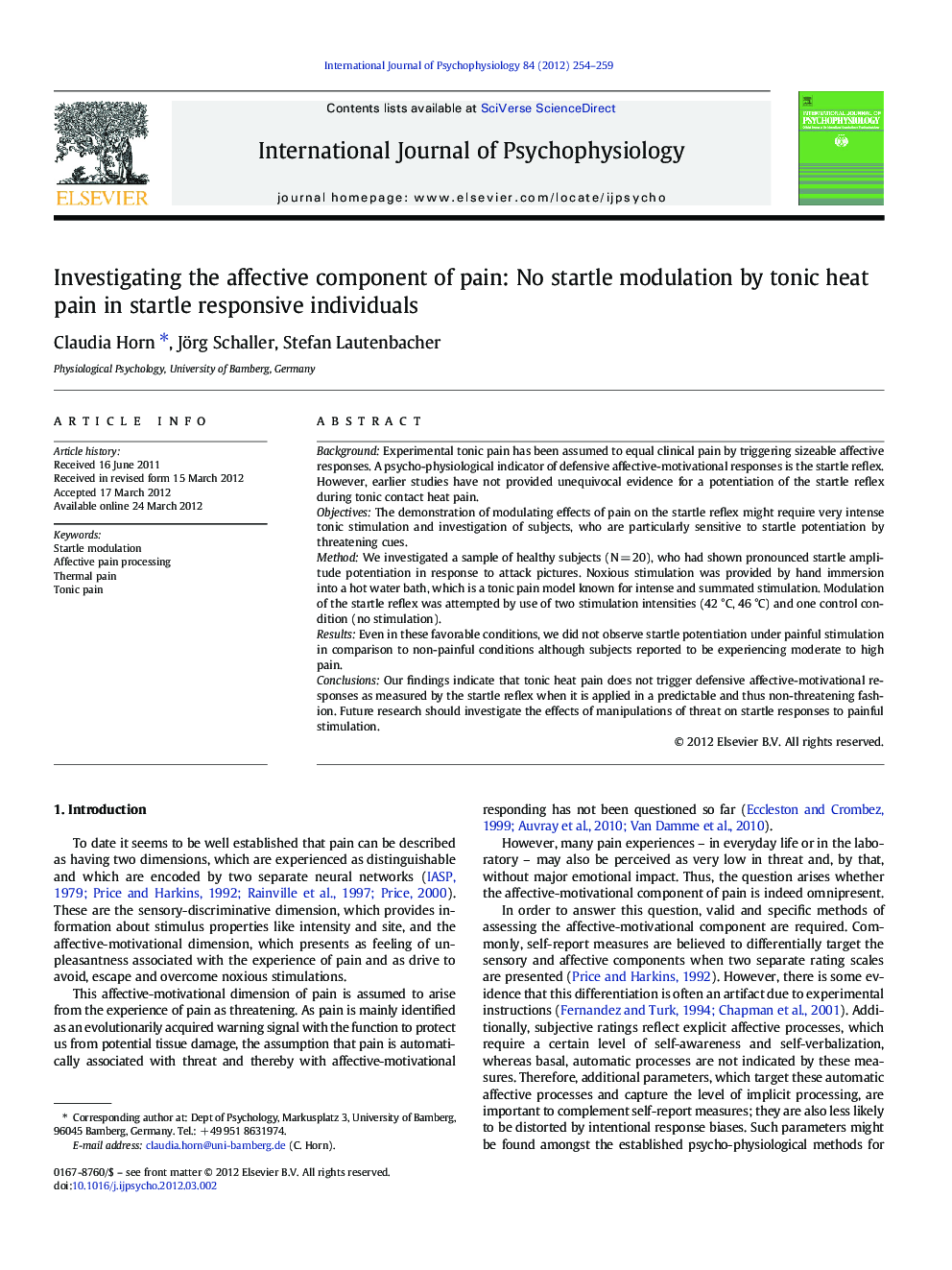| Article ID | Journal | Published Year | Pages | File Type |
|---|---|---|---|---|
| 931313 | International Journal of Psychophysiology | 2012 | 6 Pages |
BackgroundExperimental tonic pain has been assumed to equal clinical pain by triggering sizeable affective responses. A psycho-physiological indicator of defensive affective-motivational responses is the startle reflex. However, earlier studies have not provided unequivocal evidence for a potentiation of the startle reflex during tonic contact heat pain.ObjectivesThe demonstration of modulating effects of pain on the startle reflex might require very intense tonic stimulation and investigation of subjects, who are particularly sensitive to startle potentiation by threatening cues.MethodWe investigated a sample of healthy subjects (N = 20), who had shown pronounced startle amplitude potentiation in response to attack pictures. Noxious stimulation was provided by hand immersion into a hot water bath, which is a tonic pain model known for intense and summated stimulation. Modulation of the startle reflex was attempted by use of two stimulation intensities (42 °C, 46 °C) and one control condition (no stimulation).ResultsEven in these favorable conditions, we did not observe startle potentiation under painful stimulation in comparison to non-painful conditions although subjects reported to be experiencing moderate to high pain.ConclusionsOur findings indicate that tonic heat pain does not trigger defensive affective-motivational responses as measured by the startle reflex when it is applied in a predictable and thus non-threatening fashion. Future research should investigate the effects of manipulations of threat on startle responses to painful stimulation.
► We aimed to investigate affective reactions to pain using the startle paradigm. ► The startle reflex was measured during hot water stimulation. ► Subjects had proven to be sensitive to startle potentiation by threatening stimuli. ► Startle amplitude was not potentiated by painfully hot water. ► Thus, pain is not necessarily associated with defensive affective reactions.
